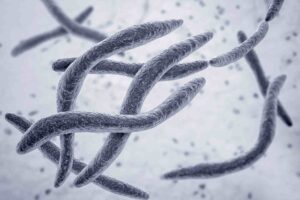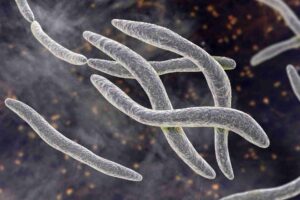colorectal cancer
Oncology
Genetic factors can influence tumor-associated microbes, offering insights into colorectal cancer progression and potential therapeutic targets.
Oncology, Gastroenterology
Each Fusobacterium nucleatum population has unique traits and distribution patterns across body sites and conditions such as colorectal cancer and Crohn’s disease.
Gastroenterology
Understanding the complex interactions between exercise, diet and gut health can help to develop approaches to influence the gut microbiota, boost immunity and prevent or manage gastrointestinal diseases.
Oncology
The microbiota plays a protective role against colorectal cancer by regulating Snhg9.
Oncology
The findings support the idea that the gut microbiota modulates immune responses, suggesting new avenues for cancer treatment.
Gastroenterology, Oncology
A recent study demonstrated causation between microbial DCA metabolism and anti-tumor CD8+ T cell response in colorectal cancer.
Oncology
By providing insights into how the gut microbiota influences cancer susceptibility, the findings may help to develop new therapies or dietary interventions.
Gastroenterology, Oncology
The findings of a recent study suggest that tilimycin-producing bacteria can cause genetic mutations in the colon and increase a person’s susceptibility to disease.
Oncology
Vaccines against F. nucleatum and other onco-microbes may help prevent diseases such as colorectal cancer.
Oncology
A recent study confirms that 5-FU exerts part of its anti-cancer effects through inhibiting the growth of F. nucleatum, the commensal associated with colorectal cancer progression.













